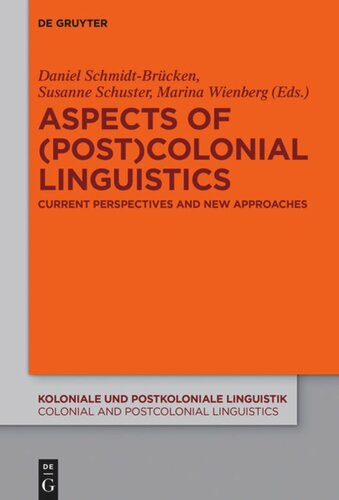

Most ebook files are in PDF format, so you can easily read them using various software such as Foxit Reader or directly on the Google Chrome browser.
Some ebook files are released by publishers in other formats such as .awz, .mobi, .epub, .fb2, etc. You may need to install specific software to read these formats on mobile/PC, such as Calibre.
Please read the tutorial at this link: https://ebookbell.com/faq
We offer FREE conversion to the popular formats you request; however, this may take some time. Therefore, right after payment, please email us, and we will try to provide the service as quickly as possible.
For some exceptional file formats or broken links (if any), please refrain from opening any disputes. Instead, email us first, and we will try to assist within a maximum of 6 hours.
EbookBell Team

4.7
36 reviewsResearch in Colonial and Postcolonial Linguistics has experienced a significant increase in contributions from varying fields of language studies, gaining the attention of scholars from all over the world.
This volume aims to showcase the variety of topics relevant to the study of language(s) in colonial, postcolonial and decolonial contexts. A main reason of this variety is that the new paradigm invites and necessitates research on different subject matters such as language typology, grammar and cross-linguistics, meta-linguistics and research on language ideology, discourse analysis and pragmatics.
The contributions of this volume are selected, peer-reviewed papers which were partly invited and partly given at the First Bremen Conference on Colonial and Postcolonial Linguistics, held in September 2013.